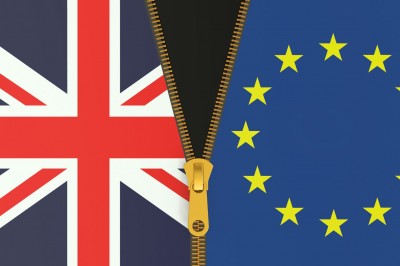The immensely complex Brexit negotiations will intersect with the internal tensions in the UK and inside the EU. Here is some thinking about this complex historical episode that has only just started to unfold.
Spiegel Online has produced an interesting account of the poltical tensions, and the resulting maneuvers, unleashed in side the EU leadership by the Brexit vote entitled: “Brexit Aftershocks: An Inside Look at the EU’s Raging Power Struggle”.
Here is an excerpt from the Spiegel piece:
“But there is more at stake than just the treatment of Britain during the Brexit negotiations. The more important question is how Europe will look 10 or 15 years from now — the question as to whether the project of an “ever closer union,” as optimistically formulated in the Treaty of Lisbon, will be continued. Or will Europe pivot back toward the nation-state, possibly even with the return of powers and competencies from Brussels to the governments of EU member states?
It is a power struggle between two opposing camps, both of which see Brexit as an opportunity to finally change Europe to conform to the vision they have long had for the bloc. The protagonists of an institutionalized Europe are Commission President Jean-Claude Juncker and Parliament President Martin Schulz. On the other side stands the majority of Europe’s heads of state and government, led by Angela Merkel, who has created an alliance on this issue with those governments in Eastern Europe with whom she was at such odds in the refugee crisis just a few months ago.”
The LSE Blog has an article entitled: “Preparations for a Brexit IV: views from Austria, the Czech Republic, Finland, Greece, and Malta”
“If Britain votes to leave the EU it will have to negotiate its exit and a new post-withdrawal relationship with the EU. Often overlooked in the UK’s debate is the fact that any exit agreement and new relationship will have to be agreed by the remaining 27 EU member states and the European Parliament. What positions might they take in the negotiations? The LSE’s BrexitVote blog is running a series of overviews from each member state and the European Parliament setting out what positions they might take.”
This article was a follow up to the introductory article “Preparations for a Brexit: the EU will shape what happens after a vote to withdraw” which has a lot of interersting analysis and an account of an event on Monday 25 January hosted by the think tank Open Europe ran a Brexit war-game in which during the morning they played out a simulation of the then ongoing attempt to renegotiate the UK’s current membership and in the afternoon simulated a UK-EU exit negotiation. In the afternoon’s exit simulation former Chancellor of the Exchequer Lord Lamont, representing the UK, presented an offer to the rEU of a new relationship that included aspects similar to the Canadian-EU trade deal and a budgetary contribution to the EU similar to those paid to the EU by Norway and Switzerland.
The EU – played by nine former heads of government or senior policy makers (representing Spain, France, Germany, Italy, Poland, Ireland, Sweden and the EU institutions) – then debated the merits of the offer put forward by the UK. The negotiations were not pretty.
Open Europe hosted a similar EU Wargame simulation back in January 2016 and the video of the entire event is below – a useful primer to the points around which the Article 50 negotiastions will hinge.
For the real obsessives here is a forensically detailed look at the impact of Brexit on the City of London, “Lost passports: a guide to the Brexit fallout for the City of London”
Bottom line:
“In summary, the City of London has a dominant position in the euro-denominated OTC derivatives markets, which it might lose after Brexit. Its position in bond trading is more on par with France and Germany.”
George Soros last week had an article at Project Syndicate “Brexit and the Future of Europe”
But the implications for Europe could be far worse. Tensions among member states have reached a breaking point, not only over refugees, but also as a result of exceptional strains between creditor and debtor countries within the eurozone. At the same time, weakened leaders in France and Germany are now squarely focused on domestic problems. In Italy, a 10% fall in the stock market following the Brexit vote clearly signals the country’s vulnerability to a full-blown banking crisis – which could well bring the populist Five Star Movement, which has just won the mayoralty in Rome, to power as early as next year.
None of this bodes well for a serious program of eurozone reform, which would have to include a genuine banking union, a limited fiscal union, and much stronger mechanisms of democratic accountability. And time is not on Europe’s side, as external pressures from the likes of Turkey and Russia – both of which are exploiting the discord to their advantage – compound Europe’s internal political strife.

